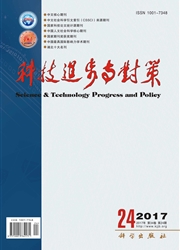

 中文摘要:
中文摘要:
当知识经济和物联网技术相结合时,泛在知识环境将在实体经济中起到重要推动作用。泛在知识环境不仅能改变企业组织的经营模式,而且能改变客户的消费方式,进而使产业经济中企业与客户的关系发生演变。面对这种挑战,将知识网、社会网、物联网和价值网相融合,形成一种全新的网络即全要素网络,是产业经济可持续发展的必然选择。分析了泛在知识环境下的全要素网络形成机理,提出了大产业整合的战略构想,认为依靠泛在计算技术,促进全要素网络中各种资源要素高效流转,加速产业链整合,形成更具能力与效率的大产业,是未来产业经济的发展方向。而这种大产业整合战略的落实,主要依靠泛在知识环境驱动的传统产业升级、新兴产业培育以及新老产业的重组和一体化发展等逐步完成。这种战略构想为中国未来的产业经济发展方向提出了一种全新的认识,'大产业'的战略意图对于中国经济转型具有重要参考价值。
 英文摘要:
英文摘要:
Ubiquitous knowledge environment is important to promote economic development when the knowledge econom-ics and internet of things technology are integrated .Ubiquitous knowledge environment can change the running mode of organizations as well as consumption patterns of customers ,and in turn promote evolution of the relation between organi-zation and customer .Facing this kind of challenge ,a novel total factor network ,which is integration of knowledge net-work ,social network ,internet of things and value network ,is an essential choice for sustainable development of industrial economics .This paper analyzes the formation mechanism of the total factor network under the ubiquitous knowledge envi-ronment ,and proposes a new strategy about big industry .It indicates that the development orientation of industrial eco-nomics in the future is to build the capable and efficient bid industry by integration of existing industries on the condition of efficient flow of resources in total factor networks which are supported by ubiquitous computing technologies .To imple-ment this strategy ,we need to upgrade traditional industries ,cultivate emerging industries ,recombine new and old indus-tries as well as promote their integrative development ,which are all driven by ubiquitous knowledge environment .This strategy is a totally novel thinking for development orientation of Chinese industrial economics in the future .The intention of big industries construction will be valuable to economics transition of China .
 同期刊论文项目
同期刊论文项目
 同项目期刊论文
同项目期刊论文
 Tacit Knowledge Sharing Modes of University Teachers from the Perspectives of Psychological Risk and
Tacit Knowledge Sharing Modes of University Teachers from the Perspectives of Psychological Risk and 期刊信息
期刊信息
